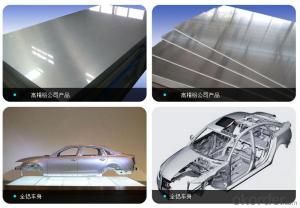Aluminum coil, a versatile and widely used material in various industries, has been a game-changer for many businesses. Its unique properties make it a top choice for numerous applications. Let’s dive into the world of aluminum coil and explore its advantages in industrial applications.
Lightweight and Strong
One of the most significant advantages of aluminum coil is its lightweight nature. It’s about one-third the weight of steel, which makes it perfect for applications where weight is a critical factor. This lightweight property doesn’t compromise its strength. Aluminum coil is incredibly strong and durable, capable of withstanding high loads without breaking or deforming. This combination of lightness and strength makes it ideal for transportation industries, such as automotive and aerospace, where reducing weight can significantly improve fuel efficiency and performance.
Corrosion Resistance
Aluminum coil’s resistance to corrosion is another major benefit. It has a natural protective layer of aluminum oxide that forms on its surface when exposed to air, which prevents further corrosion. This property makes it a popular choice for outdoor applications and in environments where moisture and chemicals are present. You’ll find aluminum coil in construction, marine, and chemical processing industries, where its corrosion resistance is a significant advantage.
Thermal Conductivity
When it comes to heat transfer, aluminum coil outshines many other materials. It has excellent thermal conductivity, which allows it to dissipate heat quickly and efficiently. This feature is particularly useful in applications like heat exchangers, cookware, and electronic devices, where managing heat is crucial. The ability to conduct heat well also makes aluminum coil an energy-efficient choice, as it can help reduce energy consumption in various processes.
Electrical Conductivity
Aluminum coil’s electrical conductivity is another attribute that sets it apart. It’s a great conductor of electricity, second only to copper. However, when you consider the weight, aluminum is a more cost-effective and efficient option for electrical applications. It’s widely used in power transmission lines, electrical machinery, and wiring due to its high conductivity and lower weight compared to copper.
Flexibility and Formability
The flexibility and formability of aluminum coil make it easy to work with. It can be bent, rolled, and shaped into various forms without breaking. This property is beneficial for manufacturing processes where complex shapes and designs are required. From architectural applications to household appliances, aluminum coil’s adaptability allows for creativity and innovation in design.
Sustainability and Recyclability
Aluminum coil is not just a practical material; it’s also environmentally friendly. It’s one of the most sustainable materials available, as it can be recycled indefinitely without losing its properties. This means that aluminum coil contributes to a circular economy, reducing waste and the demand for new resources. The recycling process is also energy-efficient, requiring only 5% of the energy needed to produce new aluminum from raw materials.
Cost-Effectiveness
Lastly, aluminum coil is cost-effective. Its lightweight nature and ease of manufacturing contribute to lower production costs. Additionally, its recyclability means that there’s a constant supply of recycled aluminum, which helps keep the prices stable and affordable. This makes aluminum coil an attractive option for businesses looking to cut costs without sacrificing quality.
In conclusion, aluminum coil offers a myriad of advantages for industrial applications. Its lightweight, strong, corrosion-resistant, thermally and electrically conductive, flexible, sustainable, and cost-effective properties make it a top material for a wide range of industries. Whether you’re in the automotive, aerospace, construction, or any other industry, aluminum coil is a reliable and efficient choice that can enhance your products and processes.

